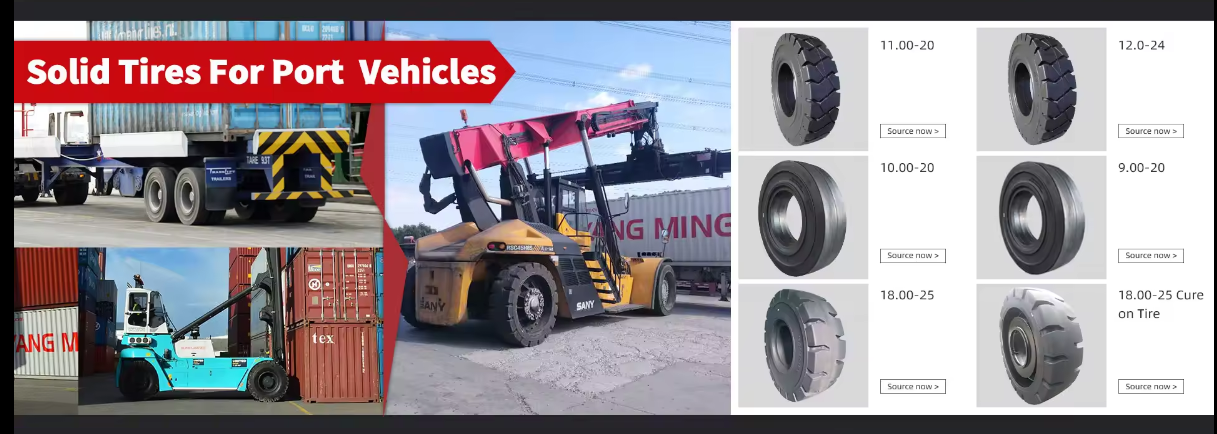In the industrial and logistics sectors, forklift performance depends heavily on tire quality. Tires for forklift 12.00-20 are specifically designed for heavy-duty applications where load capacity, traction, and durability are critical. Choosing the right tire type and structure ensures safety, reduces downtime, and improves overall operational efficiency.
Understanding 12.00-20 Forklift Tires
The designation 12.00-20 refers to the tire size and its compatibility with specific rim dimensions. These tires are commonly used on large-capacity forklifts, container handlers, and port or warehouse trucks. They are built to handle substantial loads, making them suitable for challenging industrial environments.
Key characteristics include:
-
High Load Capacity – Designed to support heavy forklifts and consistent lifting operations.
-
Excellent Traction – Provides grip on concrete, asphalt, and industrial surfaces.
-
Enhanced Stability – Reduces vibration and ensures smooth operation under full load.
-
Long Service Life – Built from durable rubber compounds resistant to wear and heat.
Types of 12.00-20 Forklift Tires
There are three main types of forklift tires available in this size:
-
Pneumatic Tires – Air-filled tires offering excellent shock absorption; ideal for outdoor use on uneven terrain.
-
Solid Tires – Puncture-proof and maintenance-free; suitable for indoor or warehouse environments.
-
Cushion Tires – Compact and smooth; provide stability on flat industrial floors with limited space.
Each type has its own advantages depending on the operating conditions, load weight, and working environment.
Choosing the Right Tire for Your Forklift
When selecting 12.00-20 forklift tires, consider the following factors:
-
Load Requirements – Ensure the tire’s load index matches the forklift’s rated capacity.
-
Operating Environment – Solid tires for indoor or smooth floors; pneumatic for outdoor or rough terrain.
-
Work Hours & Frequency – Heavy-duty solid tires are ideal for continuous 24-hour operations.
-
Safety & Comfort – Choose tires with anti-slip tread and vibration damping for operator comfort.
-
Maintenance Costs – Solid tires require less upkeep compared to pneumatic alternatives.
Selecting the right tire not only ensures safety but also reduces operational costs and machine wear over time.
Conclusion
Tires for forklift 12.00-20 play a vital role in material handling performance. Whether you operate in a warehouse, port, or manufacturing site, the correct tire choice ensures stability, load capacity, and durability. By matching tire type to your application, you can maximize productivity, extend equipment lifespan, and maintain workplace safety.
FAQ
Q1: What does the size 12.00-20 mean for forklift tires?
A: It indicates the tire width (12 inches) and rim diameter (20 inches), suitable for heavy-duty forklifts and port equipment.
Q2: Are solid or pneumatic tires better for forklifts?
A: Solid tires are puncture-proof and ideal for indoor use, while pneumatic tires offer better shock absorption for outdoor or uneven surfaces.
Q3: How often should forklift tires be replaced?
A: It depends on usage intensity, but regular inspection every 1,000 operating hours is recommended for safety.
Q4: Can 12.00-20 tires be customized for specific applications?
A: Yes, manufacturers often offer variations in tread design, rubber compounds, and sidewall reinforcement for different industries.
Post time: 29-10-2025

